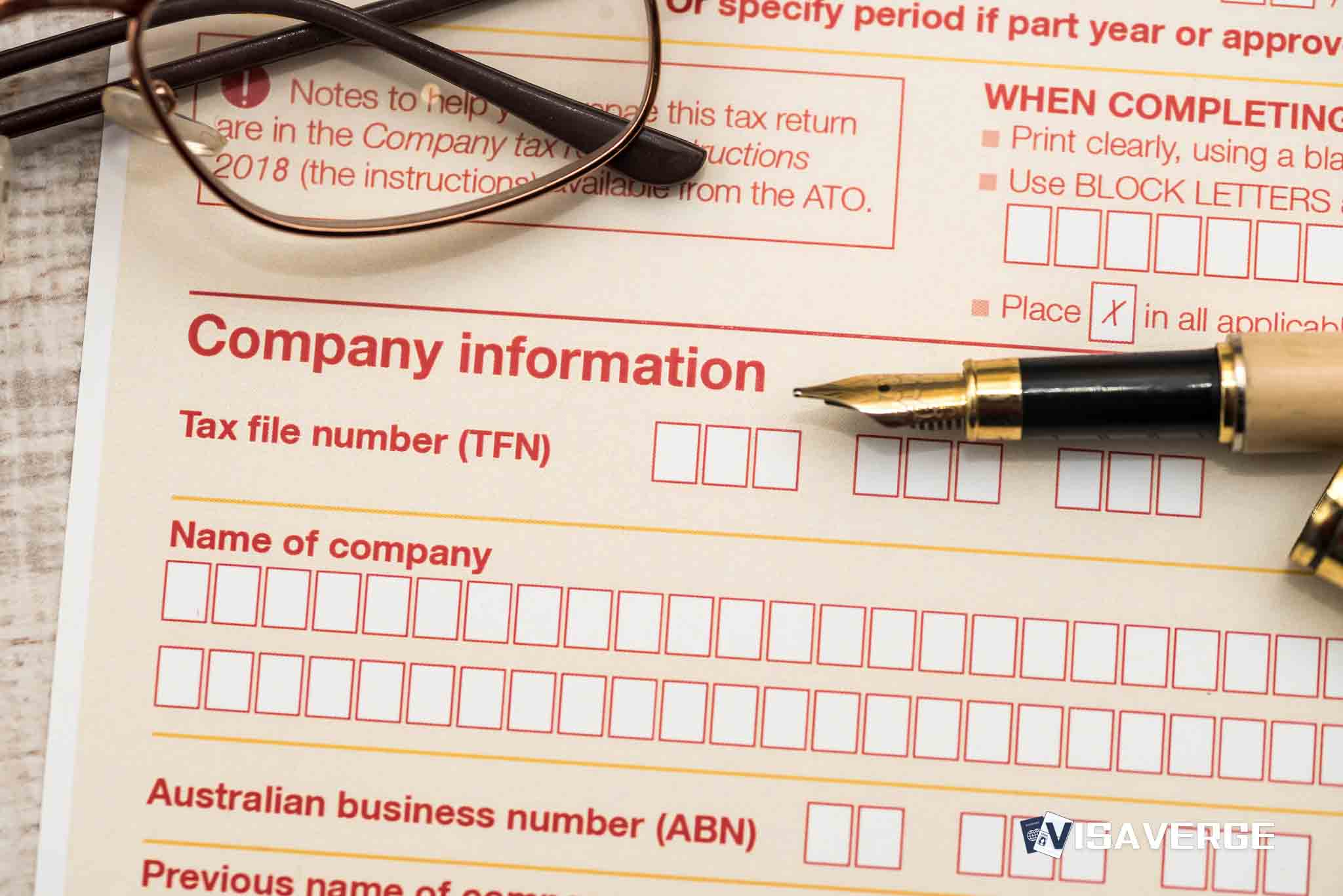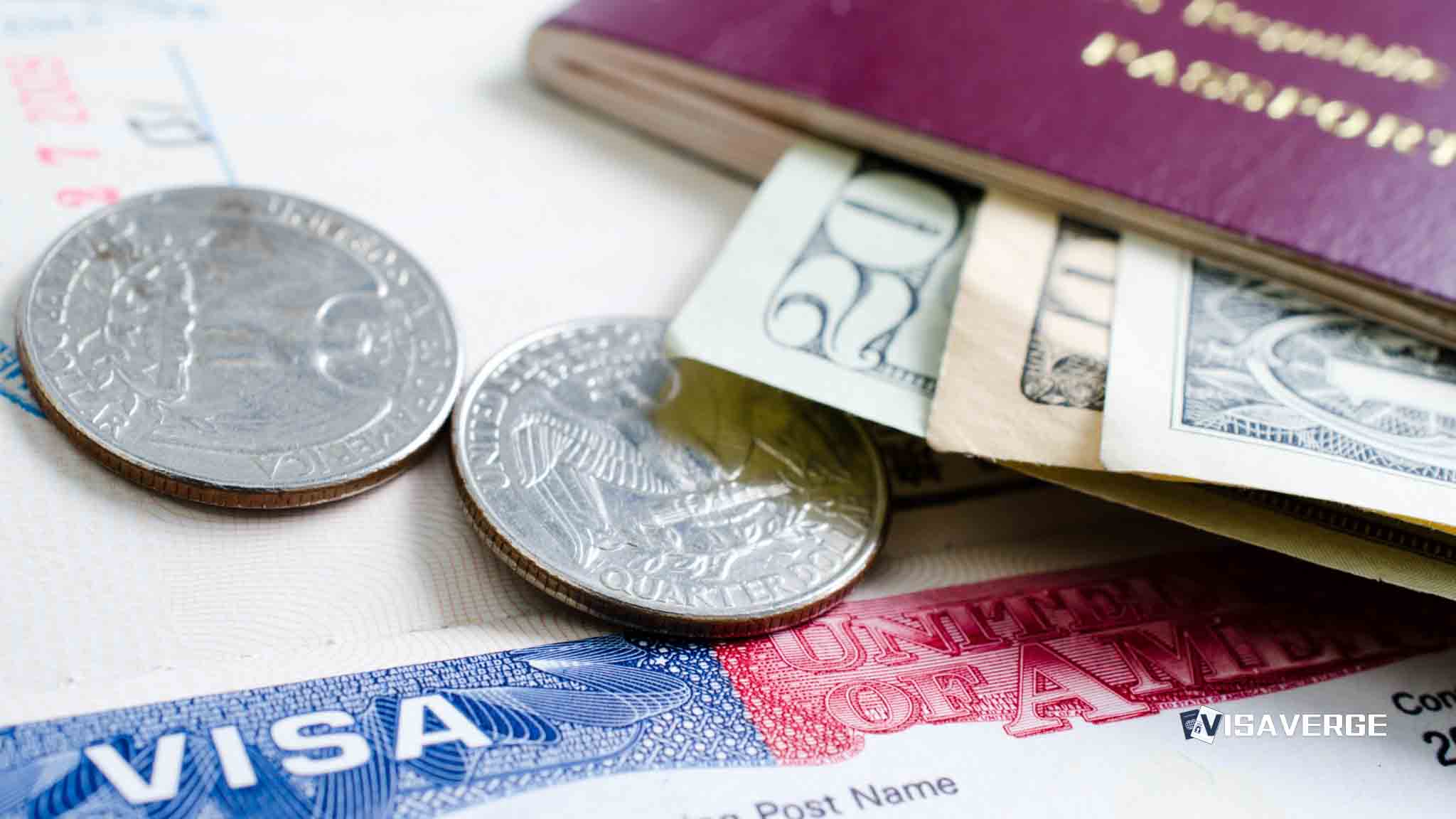Key Takeaways
• In Q1 2025, 1,930 US citizens applied for British citizenship, the highest quarterly number recorded.
• UK abolished non-dom tax regime, prompting wealthy Americans to seek citizenship for long-term stability.
• Dual citizenship allowed; US citizens keep US nationality while gaining British citizenship.
As of May 23, 2025, the United Kingdom 🇬🇧 is witnessing a record-breaking surge in applications for British citizenship from US citizens. This unprecedented wave is directly tied to Donald Trump’s return to the US presidency in November 2024, as well as significant changes in UK tax policy and growing concerns about safety, education, and political stability in the United States 🇺🇸. According to analysis by VisaVerge.com, the number of Americans seeking a second passport in Britain has reached levels never seen before, reshaping both the UK’s immigration landscape and the lives of thousands of American families.
Record Numbers: Who’s Applying and Why Now?

In the first quarter of 2025 alone, more than 1,930 US citizens submitted applications for British citizenship. This is the highest quarterly figure since records began. The total number of applications from Americans in 2024 exceeded 6,100, marking a 26% increase from 2023 and the largest annual total in two decades. The last quarter of 2024 saw a dramatic 40% year-on-year spike, with about 1,700 applications filed during that period.
These numbers are not just statistics—they represent a growing movement of Americans seeking stability, opportunity, and security outside their home country. The UK Home Office, which oversees immigration and citizenship, has confirmed this surge, reporting that overall grants of British citizenship rose to 269,621 in 2024, a 30% increase from the previous year.
Who Are the New Applicants?
- Families concerned about safety and education: Many parents cite worries about gun violence and the high cost of private schooling in the US. The UK is seen as offering safer schools and more affordable private education.
- Wealthy Americans: The end of the UK’s non-domicile (“non-dom”) tax regime has prompted high-net-worth individuals to seek British citizenship for tax certainty.
- Marginalized and LGBTQ+ groups: Some applicants are motivated by fears over social policies and rhetoric in the US, especially under the Trump administration.
- Young professionals and students: There has been a notable rise in American student visa applications to the UK, up 9.6% in the first quarter of 2025 compared to the same period last year.
What’s Driving the Surge? Key Factors Explained
1. Political Climate in the US
Donald Trump’s return to the White House has reignited concerns among many Americans, especially those from marginalized communities. Policies and rhetoric on social issues, campus activism, and civil rights have made some US citizens feel unwelcome or unsafe. Ono Okeregha, Director of the Immigration Advice Service (IAS), explains: “People are leaving because of fear, frustration, and financial security. Beyond that is a deeper fear about personal safety.”
While politics is rarely the only reason for such a major move, it is a powerful motivator when combined with other factors. Madeleine Sumption, Director of the Migration Observatory at Oxford University, notes that for people from stable countries like the US, politics is usually a “third or fourth order factor,” but the current environment has made it more significant.
2. UK Tax Policy Changes
The UK’s decision to abolish its non-dom tax regime—long a draw for wealthy foreigners—has created urgency among affluent Americans. The new system offers a four-year tax-free window for new residents, after which all worldwide income is taxed. This has led many to seek British citizenship as a way to secure long-term tax certainty.
Elena Hinchin, a partner at Farrer & Co, observes: “There’s much more interest than under the previous Trump administration. The UK’s decision to abolish non-dom tax status has influenced some wealthy Americans living in Britain to apply for citizenship before leaving.”
3. Education and Safety Concerns
For families, the safety of children and the cost of education are major factors. The US has seen ongoing debates about gun violence in schools and the rising cost of private education. In contrast, the UK is perceived as safer, with private school fees that are often significantly lower than in the US.
4. Property and Investment Opportunities
US nationals now make up 11.6% of foreign buyers in central London’s prime property market, making them the largest group of overseas investors in this sector. This trend is partly driven by the desire for a stable “Plan B” in case of further political or economic turmoil in the US.
5. Dual Nationality Allowed
Both the US and UK permit dual citizenship. This means Americans do not have to give up their US citizenship to become British citizens, making the process more attractive and less risky.
The British Citizenship Process: Step-by-Step Guide
For US citizens considering British citizenship, the process is clear but requires careful planning. Here’s a breakdown of the main steps:
- Residency Requirement:
- You must have lived in the UK for at least five years (or have a British parent for citizenship by descent).
- Time spent in the UK must be legal and continuous.
- Permanent Residency:
- Hold Indefinite Leave to Remain (ILR) or settled status for at least 12 months before applying.
- ILR is similar to a US green card and allows you to live and work in the UK without time limits.
- Application Submission:
- Complete the online application form and pay the fee (£1,580 for adults as of 2025).
- The form asks for personal details, immigration history, and supporting documents.
- Documentation:
- Provide proof of residency (such as utility bills, rental agreements, or employment records).
- Show English language proficiency (through a recognized test or academic qualification).
- Pass the Life in the UK Test, which covers British history, culture, and values.
- Biometrics:
- Attend a biometrics appointment to provide fingerprints and a photo.
- Decision:
- Wait for the Home Office to process your application. This usually takes 3–6 months, but times can vary.
- Citizenship Ceremony:
- If approved, attend a citizenship ceremony to receive your certificate and officially become a British citizen.
For the most up-to-date information and official forms, visit the UK Home Office citizenship page.
Real-Life Scenarios: Why Americans Are Making the Move
Case Study 1: The Family Seeking Safety and Stability
The Johnsons, a family from Texas, decided to apply for British citizenship after their local school experienced a security scare. “We wanted a place where our kids could walk to school without fear,” says Mrs. Johnson. The family was also drawn by the lower private school fees in the UK and the chance to experience a different culture.
Case Study 2: The Entrepreneur Facing Tax Uncertainty
Mr. Smith, a tech entrepreneur from California, moved to London in 2020. With the end of the non-dom tax regime, he applied for British citizenship to secure his business interests and avoid future tax surprises. “I wanted to know what my tax situation would be in the long run,” he explains.
Case Study 3: The LGBTQ+ Professional
After the 2024 US election, Alex, a marketing executive, felt increasingly uncomfortable with the political climate. “I’m part of the LGBTQ+ community, and I didn’t feel safe anymore,” Alex shares. The UK’s more inclusive environment and the ability to keep US citizenship made the decision easier.
Multiple Perspectives: What Experts and Stakeholders Say
- Immigration Lawyers:
Legal experts point to a mix of political fear, tax changes, and personal safety concerns as the main drivers. The diversity of applicants—from families to high-net-worth individuals—shows that the trend is broad-based. - Migration Scholars:
While politics is a factor, economic and personal motivations like education, safety, and cost of living are just as important. The current surge is unique in its scale and the variety of people involved. -
Tax Advisors:
The abolition of the non-dom regime is a key reason for the uptick in applications from wealthy Americans. Many are seeking certainty and stability for their finances. -
Advocacy Groups:
Organizations like American Citizens Abroad continue to push for changes to US tax laws that would make life easier for expats. They argue that a territorial tax system would reduce the financial burden on Americans living abroad.
Historical Context: How Did We Get Here?
The number of Americans applying for UK citizenship has doubled in the past 20 years. There were previous spikes in interest after Donald Trump’s first election in 2016, but the current surge is unprecedented in both volume and diversity. This pattern fits into a broader trend of Americans seeking “Plan B” citizenships in stable countries as a hedge against domestic uncertainty.
Policy Implications: What Does This Mean for the UK and the US?
- For the UK:
The influx of American citizens brings economic benefits, especially in the property market and private education sector. However, it also raises questions about integration and the long-term impact on British society. -
For the US:
The trend highlights growing dissatisfaction among some Americans with the political and social climate at home. It also underscores the importance of policies on safety, education, and taxation in shaping migration decisions. -
For Immigrants:
The ability to hold dual citizenship makes the UK an attractive option. The process is accessible, but applicants must be prepared for the costs and documentation involved.
Practical Guidance: What Should US Citizens Know Before Applying?
- Start Early: The process can take several months, so plan ahead.
- Gather Documents: Keep records of your residency, employment, and education in the UK.
- Understand Tax Implications: Consult a tax advisor to understand how UK and US tax laws will affect you.
- Seek Legal Advice: Consider consulting with immigration lawyers or organizations like the Immigration Advice Service (IAS) or Sable International.
- Stay Informed: Check the UK Home Office website for updates on fees, requirements, and processing times.
Official Resources and Support
- UK Home Office: British Citizenship
- Immigration Advice Service (IAS)
- Sable International
- American Citizens Abroad
Key Drivers and Effects: At a Glance
| Driver | Effect/Implication |
|---|---|
| Trump’s election & policies | Surge in applications, especially from marginalized groups |
| UK non-dom tax abolition | Wealthy Americans seeking citizenship for tax certainty |
| US education & safety concerns | Families relocating for school safety, lower fees |
| Dual nationality allowed | Americans can retain US citizenship |
| Political & economic uncertainty | “Plan B” citizenship trend |
Looking Ahead: Will the Trend Continue?
Experts believe the surge in US applications for British citizenship will persist as long as political polarization and policy uncertainty remain high in the United States 🇺🇸. The UK’s new tax regime may further encourage wealthy Americans to seek long-term stability. Immigration lawyers expect continued strong demand, especially if US domestic policies become more restrictive or divisive.
Final Thoughts and Next Steps
The record-breaking rise in US citizens applying for British citizenship is a complex story shaped by politics, economics, and personal safety. Donald Trump’s return to the presidency, changes in UK tax law, and concerns about education and security have all played a role. For Americans considering this path, the process is clear and accessible, with the added benefit of retaining US citizenship. As global uncertainty continues, the UK remains a top choice for those seeking a fresh start and a secure future.
For those interested in applying, begin by reviewing the official UK government guidance, gathering your documents, and seeking professional advice to ensure a smooth transition. The trend shows no signs of slowing, and for many, British citizenship offers a valuable opportunity for stability and peace of mind.
Learn Today
British citizenship → Legal status granting rights to live, work, and vote in the United Kingdom.
Non-dom tax regime → Former UK policy allowing foreigners to avoid paying tax on non-UK income.
Indefinite Leave to Remain (ILR) → UK immigration status allowing permanent residence without time restrictions.
Life in the UK Test → Exam assessing knowledge of British history, culture, and values for citizenship applicants.
Dual citizenship → Holding citizenship in two countries simultaneously with rights and responsibilities in both.
This Article in a Nutshell
A surge in British citizenship applications from US citizens hits record levels driven by Trump’s 2024 win, UK tax changes, and safety concerns. Families, wealthy individuals, and LGBTQ+ groups seek stability. The process requires five years’ residency, permanent status, and passing UK tests, making dual citizenship an attractive option.
— By VisaVerge.com
Read more:
• Georgetown scholar details harsh realities of immigration detention
• Republican NJ governor candidates clash over immigration in key debate
• Immigration policies prompt new fears of racial profiling with 287(g)
• UK proposes sweeping Immigration System changes in new white paper
• Huntsville grand jury indicts eight for federal immigration crimes








